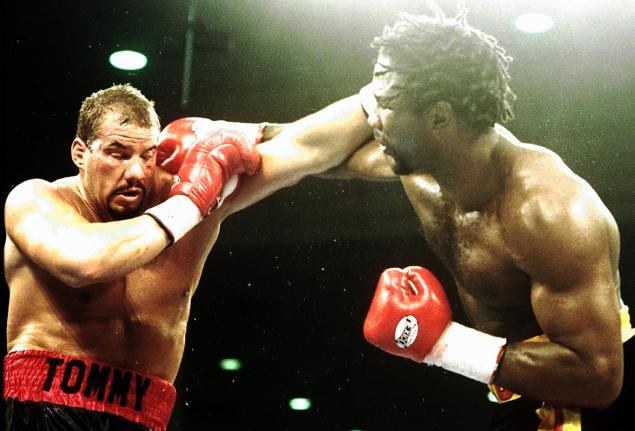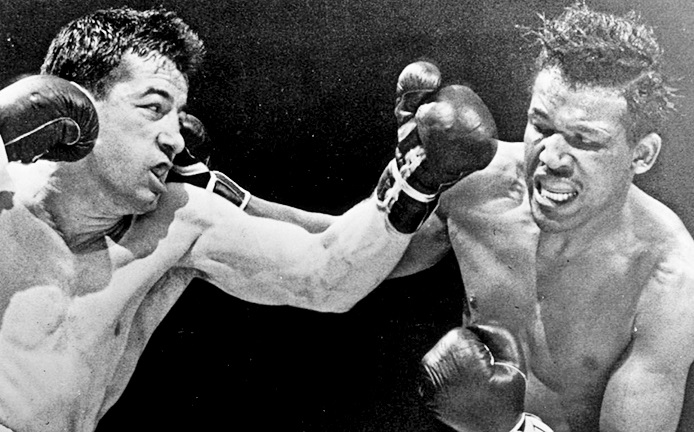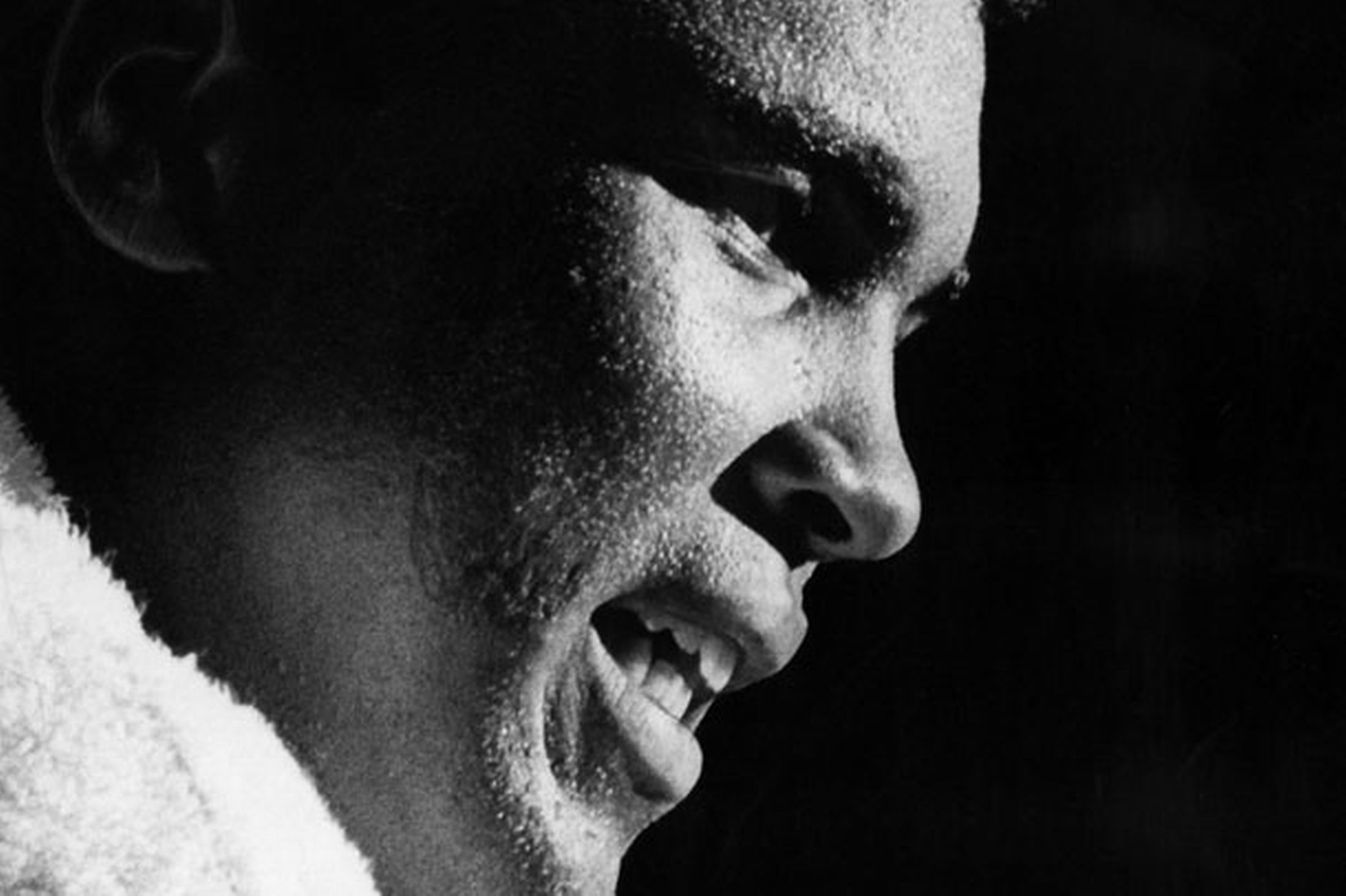Dec. 29, 2007: Cunningham vs Huck
Surely one of the most agonizing decisions a boxing trainer ever has to make is to signal surrender on behalf of a brave but depleted warrior. After weeks and weeks of preparation, defeat is of course a most painful prospect; to actually decide that victory is not possible and capitulate must be nothing short of heartbreaking. And yet, there are circumstances when, for the good of the athlete, such a decision must be made. And, if it is the correct decision, the fighter in question will profit from it, learn from it, and then bounce back stronger than ever.
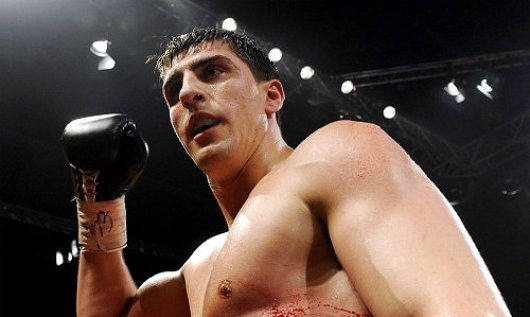
A decade ago American Steve Cunningham traveled to Germany to defend his IBF cruiserweight title against Marco Huck. At that time, Huck was the younger, greener fighter, just 23-years-old, undefeated in 19 fights, and hungry to win a world championship. And in the opening minutes of the battle it appeared that Huck and his hometown fans would have much to cheer about as the challenger landed some vicious right hands, staggering Cunningham in the first round and repeating his success in the second. The bout appeared to be shaping up into a grueling, no-holds-barred slugfest, exactly what the burly Huck was looking for.
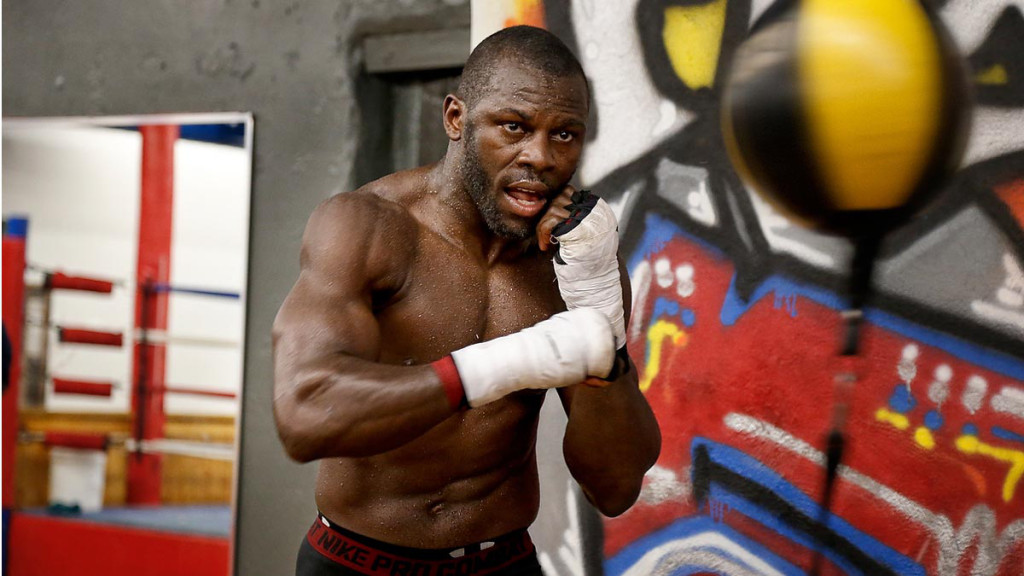
However, Cunningham, older than Huck by eight years and more experienced at the elite level, stayed calm and boxed with intelligence. While he was repeatedly driven to the ropes by Huck’s brazen attacks, he never allowed the challenger to assume full control of the fight, instead landing his own clean jabs and body punches, and in round five he hurt Huck with a powerful right of his own. The German bounced back to take the sixth and for a moment it appeared as if the momentum was with Huck and his fans, but in round seven the champion asserted himself. Huck was now bleeding from his left ear and clearly tiring as Cunningham took control with the sharper blows.
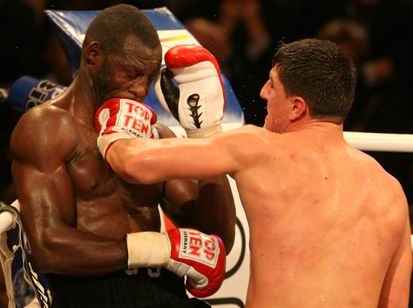
The next three rounds saw the American pulling away as Huck continued to fade. His last stand came in round eleven as he attacked with renewed fury in a desperate bid to turn the tide, but while he won the round, he also emptied his gas tank. Then came round 12.
A clearly exhausted Huck was slow to leave his corner and once the final stanza got underway in earnest it was obvious the brave, young fighter had nothing left. His legs collapsed beneath him in a clinch and once back on his feet he was hurt by a left uppercut and sent staggering across the ring. Cunningham teed off, landing blow after blow on his wounded quarry, before Huck’s trainer, Ulli Wegner, threw a towel into the ring to save his fighter from further punishment. The referee halted the match and the champion collapsed to the canvas in relief and jubilation.

“If a 23-year-old fighter with such a great potential is in that much trouble I simply have to react,” stated Wegner after the fight.
Huck, for his part, did not question his coach’s decision and gave credit to Cunningham. “I was too tense and I had difficulty getting my punches off,” said the dejected challenger. “Cunningham was the better fighter tonight and deserved to win.”
Wegner’s decision was one that no doubt some in the Seidensticker Halle in Bielefeld, Germany lamented as they saw one of their own fall to the visiting American. But time would prove Wegner right. Huck would only grow from this defeat, rebounding to win the WBO cruiserweight championship in 2009, a title he would hold for over five years. Huck learned from this setback but he had his coach to thank for the lesson. Faced with the most difficult dilemma a trainer can confront, he did what was right for his boxer, protecting him so he could fight, and win, another day. — Robert Portis



